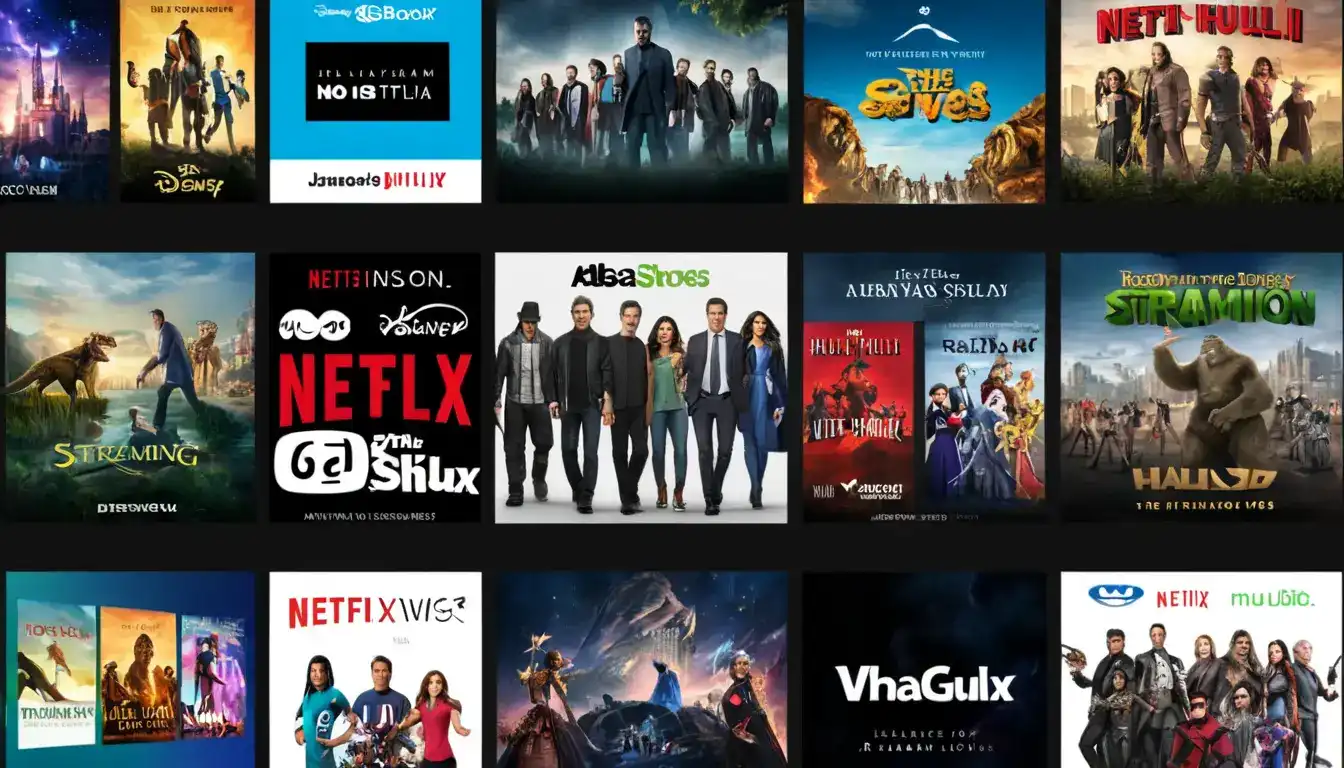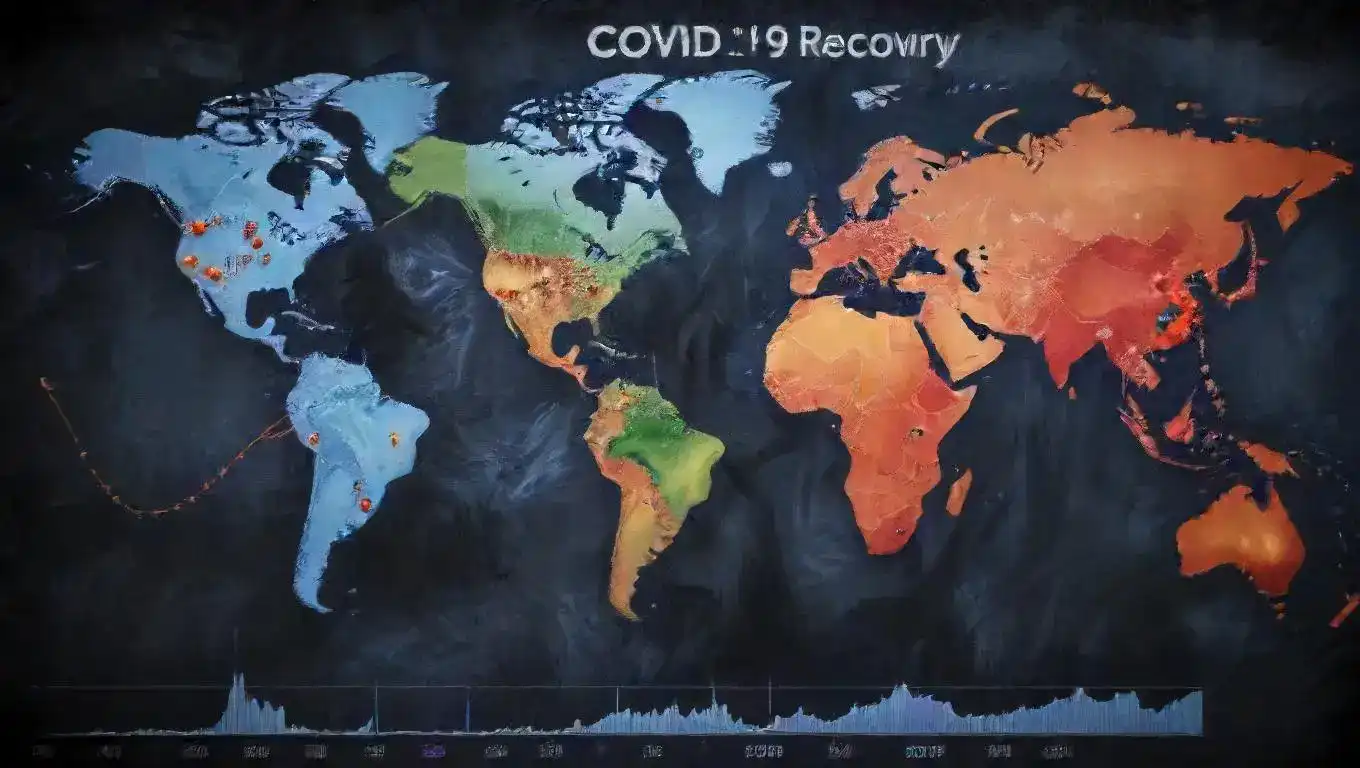Key Insights from World Economic Forum
Emily Willis

Photo: Key Insights from World Economic Forum
The World Economic Forum (WEF) annual meeting in Davos, Switzerland, serves as a crucial global platform where leaders from government, business, and civil society converge to discuss and address the world's most pressing challenges. These gatherings aim to foster dialogue, shape global agendas, and drive collaborative solutions to complex issues ranging from economic instability to climate change and technological disruption.
The WEF's mission is to "improve the state of the world" by engaging diverse leaders to shape global, regional, and industry agendas. While the Forum has faced scrutiny regarding its actual impact and inclusivity, it undeniably provides a unique arena for networking, knowledge exchange, and the initiation of public-private partnerships. Discussions often center on identifying common ground and developing proposals to enhance international cooperation across various critical areas.
Recent WEF meetings, particularly those in 2024 and 2025, have highlighted several overarching themes, underscoring the urgency of collective action in a rapidly evolving global landscape. These themes consistently reflect the interconnectedness of global challenges and the imperative for swift adaptation and cooperation in what the WEF has termed the "Intelligent Age."
Key Global Challenges and Opportunities Discussed at WEF
The World Economic Forum consistently frames its discussions around a set of interconnected global challenges and opportunities. Recent meetings have emphasized the need to rebuild trust, reimagine growth, safeguard the planet, transform industries in the intelligent age, and invest in people.
The Evolving Global Economic Landscape
The global economic outlook remains a primary focus at Davos, with leaders grappling with issues of inflation, economic growth, and potential recession risks. The WEF's Global Risks Report frequently highlights economic uncertainty as a significant challenge over the coming decade. Discussions often revolve around the need for new growth models that balance productivity and innovation with inclusion, sustainability, and resilience.
- Insight: While some regions, like the US, have shown economic confidence, Europe has expressed concerns about weakness, regulation, and a lack of innovation. Developing nations, including India, Indonesia, South Africa, Brazil, and Nigeria, have displayed optimism. This divergence underscores the need for businesses and individuals to adopt flexible strategies, diversify investments, and build resilience against economic fluctuations. Identifying strategies for sustainable growth is crucial, especially in light of demographic disparities, rising public debt in developing economies, and geopolitical tensions. The digital economy is expected to play a key role, potentially accounting for over 15.5% of global GDP, with 70% of new value created on digitally-enabled platforms over the next decade.
Navigating Geopolitical Fragmentation
Geopolitical tensions and fragmentation have become increasingly prominent topics at the WEF. Discussions at Davos 2024 and 2025 addressed "security and cooperation in a fractured world," highlighting the widening gap in global cooperation affecting trade and investment opportunities. The WEF's Global Cooperation Barometer, while showing positive trends in climate, innovation, and health, noted a sharp drop in cooperation on peace and security.
- Insight: The forum emphasizes the critical need for global cooperation to tackle shared challenges, even as conflicts persist and superpower relations remain strained. Businesses are urged to plan for a wide range of scenarios, including potential "surgical tariffs" rather than broad-based ones, and to consider the impact of nationalistic structures on global operations. For individuals, understanding the global political climate is essential for informed decision-making, from career choices to investment strategies. The ongoing politicization of the forum itself, and debates over its relevance in shaping global policy, highlight the complex interplay between government action and private sector contributions.
Accelerating Climate Action and Sustainability
Climate change and sustainability are central themes at the World Economic Forum, consistently ranking among the top global risks. Recent meetings have placed a significant focus on climate and environmental, social, and governance (ESG) challenges, with discussions on energy transition, green economy, and climate resilience. The devastating impacts of human-induced climate change, including wildfires, hurricanes, and flooding, have inflicted trillions in damages globally, reinforcing the urgency of action.
- Insight: The WEF stresses that "climate smart is business smart," with a strong financial case for transitioning to cleaner energy sources. Global clean energy investments are projected to exceed US$2 trillion for the first time, and green markets are expected to grow from US$5 trillion in 2024 to US$14 trillion by 2030. Businesses are encouraged to embed sustainability into their practices for resilience and long-term success. For individuals, this translates to opportunities in green jobs, sustainable investments, and adopting eco-friendly practices. The Forum also highlights the importance of public-private partnerships in driving climate and nature action, particularly in developing countries.
The Transformative Power of Technology
Artificial Intelligence (AI) has dominated the agenda at recent WEF meetings, with discussions moving from theoretical understanding to real-world applications and implications. The theme "Collaboration for the Intelligent Age" underscored the importance of swift adaptation and global cooperation for emerging technologies.
- Insight: Experts anticipate generative AI will affect all industries, with approximately 40% of working hours potentially automated by large language models. This transformation necessitates ethical oversight, governance frameworks, and collaboration across sectors to ensure AI benefits are equitably distributed and risks like algorithmic bias and data privacy are addressed. For the general audience, this means understanding AI's potential impact on daily life and the workforce, and recognizing the need for continuous learning to adapt to new technological landscapes. The development of new technologies across biotech, robotics, and automation also featured heavily in discussions.
Reshaping the Future of Work and Skills
Closely linked to technological transformation, the future of work and the need for reskilling and upskilling were major discussion points. The rapid development of AI is profoundly reshaping the employment landscape, impacting sectors globally.
- Insight: The WEF's "Jobs of Tomorrow" white paper suggests that a significant portion of white-collar and cognitive work could be automated by AI. This highlights the critical need for a workforce that can adapt to rapid technological advancements. Key skills identified for navigating the AI era include analytical thinking, creative thinking, resilience, flexibility, agility, motivation, self-awareness, curiosity, and lifelong learning. For individuals, investing in these skills and embracing continuous learning are vital for career adaptability and long-term employability. Companies are urged to leverage AI to engage and empower employees during this transition.
Promoting Social Equity and Inclusive Growth
Discussions at the WEF also consistently address social equity, healthcare, and inclusive growth. Initiatives related to jobs, health, and inclusion, including women's health, have been key focuses, with platforms like the "Women's Health Impact Tracking platform" being introduced to monitor and bridge health gaps. The forum also emphasizes the importance of social innovation and collaboration between mainstream businesses and social enterprises to foster a more holistic approach to economic development.
- Insight: The WEF highlights the need to invest in people as a core component of reimagining growth models. This includes addressing issues like rising social inequalities and ensuring that economic growth does not come at the cost of environmental degradation. For individuals, this means advocating for equitable access to healthcare and education, and participating in community efforts that foster inclusion and sustainable development. The forum also champions principles and initiatives that help companies minimize their environmental footprints while seizing new market opportunities in the green economy, ensuring a just transition that protects workers and communities.
Actionable Insights for a General Audience
The insights from the World Economic Forum, while often discussed at a macro level, have direct implications for individuals and communities worldwide. Understanding these global trends can empower you to make more informed decisions in your personal and professional life.
- Stay Informed and Adaptable: The world is changing rapidly, driven by technological advancements and geopolitical shifts. Regularly consuming credible news and analysis can help you understand these trends and anticipate their impact. Adaptability is key to navigating uncertainty.
- Invest in Lifelong Learning: With AI and automation reshaping industries, continuous learning is no longer optional. Focus on developing "human-centric" skills like critical thinking, creativity, emotional intelligence, and complex problem-solving, which are less susceptible to automation. Online courses, workshops, and even self-directed learning can be invaluable.
- Embrace Sustainable Practices: Climate action is a shared responsibility. Look for ways to reduce your environmental footprint, support businesses committed to sustainability, and advocate for green initiatives in your community. Small individual actions, collectively, can contribute to larger systemic change.
- Foster Community and Collaboration: In a fragmented world, building strong local and global communities is more important than ever. Engage in dialogues, support local businesses, and participate in initiatives that promote social equity and cooperation. The WEF's emphasis on multi-stakeholder collaboration underscores that complex problems require diverse perspectives and collective effort.
The Importance of Global Collaboration
A recurring and central theme at the World Economic Forum is the indispensable role of global cooperation. The Forum's very existence is predicated on the belief that the world's problems are best tackled through dialogue and partnership between diverse stakeholders—governments, businesses, civil society, and academia.
The challenges of the "Intelligent Age," from managing AI's ethical implications to accelerating climate action and fostering economic resilience, demand solutions that transcend national borders and individual sectors. The WEF provides a unique space for leaders to find common ground, coordinate efforts, and
Latest ✨
View AllRevolutionize your learning! Data analytics is the future of education, enabling personalized paths & unlocking individual potential.
Emily Willis
Cloud computing is essential for modern businesses, offering cost savings, scalability, and improved collaboration. Implementing cloud computing requires careful planning to ensure safety and efficiency. Tips for safe and efficient implementation include conducting a needs assessment, choosing the right cloud service model, prioritizing security, planning for data migration, optimizing costs, training your team, implementing backup and recovery solutions, monitoring performance, planning for scalability, and staying updated with industry trends.
Emily Willis
effective leadership in a constantly changing world and explores the traits and habits of inspiring leaders, both historical and contemporary. It highlights the key lessons from leaders such as Nelson Mandela, Martin Luther King Jr., Jacinda Ardern, Elon Musk, and Malala Yousafzai.
Emily Willis
Customer feedback is a goldmine for business growth. Learn how leveraging insights enhances products, builds loyalty, and keeps you competitive.
Emily Willis
Business
View All
June 9, 2025
Cloud Computing for Small BusinessUnlock growth & efficiency! Discover how cloud computing empowers small businesses with cost savings & agility in the digital age.
Emily Willis

June 9, 2025
Customer Retention Strategies That WorkUnlock lasting success! Learn proven customer retention strategies to build loyalty, reduce churn, and boost your business growth.
Emily Willis

June 8, 2025
Strategic Planning for Long-Term WinsChart your course to enduring success! This article demystifies strategic planning, offering an actionable framework for long-term wins and sustainable growth.
Emily Willis
Economy
View AllBoost your business profits! Discover actionable strategies to maximize revenue and efficiently manage costs for sustainable growth.
Read MoreUnpack the 17 Sustainable Development Goals (SDGs): a global blueprint addressing poverty, climate change, and inequality for a sustainable future.
Read MoreThe COVID-19 pandemic has had a significant impact on the global economy, leading to market turmoil, disrupted supply chains, and widespread business closures. As countries slowly recover, there are questions about the future of the global economy. While there are signs of recovery, challenges such as rising inflation, uneven global recovery, labor market disruptions, and supply chain bottlenecks remain. To ensure a sustainable recovery, policymakers must continue to support vulnerable sectors, invest in education and reskilling, strengthen healthcare systems, promote supply chain resilience, address inequalities, and prioritize sustainability.
Read MoreEntertainment
View All
August 4, 2024
The Latest Music Trends, Artists Influencing Pop Culture, and How Digital Platforms Facilitate the Distribution of Music GloballyThe music industry is constantly changing due to consumer preferences, technology, and the influence of artists. Digital platforms have revolutionized music creation, distribution, and consumption, leading to genre fusion, the rise of independent artists, and collaborative projects. Influential artists like Billie Eilish, BTS, and Taylor Swift have shaped pop culture globally. Streaming services, social media, and direct-to-fan engagement have transformed music distribution. Digital platforms also promote cultural diversity and inclusivity, expand markets and revenue, and drive technological advancements. The industry is also focusing on sustainability and ethical practices. To succeed in the future, stakeholders must embrace digital transformation and champion inclusivity.
Emily Willis

August 4, 2024
The Evolution of Streaming Services Such as Netflix, Disney+, Hulu, and the Implications for the Traditional Entertainment IndustryThe rise of streaming services has revolutionized the entertainment industry, offering on-demand access to a vast library of content through internet-connected devices. Platforms like Netflix, Disney+, and Hulu have diversified their content libraries, reshaped consumer behavior, and challenged traditional distribution models. Technological advancements have enhanced streaming experiences, while economic and cultural implications have led to global market expansion and increased investment in original content production. The future of the streaming industry will be shaped by competition, convergence of media and technology, and the need for adaptation to changing consumer preferences. Embracing digital transformation and strategic partnerships will be crucial for stakeholders in navigating the evolving landscape of modern entertainment.
Emily Willis

August 5, 2024
Entertainment in Society: Social Impact, Cultural Influence, Economic ContributionsEntertainment is more than just a way to pass the time it has a significant impact on society, culture, and the economy. It promotes empathy, sparks conversations, and drives social change. It reflects and shapes cultural trends, while also preserving traditions. The entertainment industry generates jobs, contributes to economic growth, and drives technological innovation.
Emily Willis
Health
View Allsignificance of mental health awareness in today's fast-paced world. It discusses the importance of understanding mental health, breaking down stigma, and promoting positive mental health practices.
Emily Willis
Regular physical activity is crucial for maintaining long-term health and well-being. It has numerous benefits, including improving cardiovascular health, aiding in weight management, enhancing mental health, strengthening bones, boosting immune function, and promoting longevity.
Emily Willis
The healthcare landscape is being transformed by technological advancements, with telehealth and remote care providing convenient access to healthcare services. Artificial intelligence is revolutionizing diagnostics, personalized medicine, and drug discovery. Wearable technology is empowering patients to take control of their health.
Emily Willis
Trending 🔥
View All
1
2
3
4
6
7
8
9
10
Lifestyle



Sports
View AllAugust 5, 2024
Inclusive Playing Field: Creating a Welcoming and Accessible Sports Environment
Read MoreTechnology
View All
August 4, 2024
The Future of Artificial Intelligence: Opportunities and Challenges
opportunities and challenges presented by Artificial Intelligence (AI) in various sectors such as efficiency, customer experiences, healthcare, education, and economic growth. It highlights the need to address ethical considerations, job displacement, privacy issues, security risks, and regulatory challenges associated with AI.

August 5, 2024
Best AR Apps for Interior Design
Discover the top AR apps for interior design and transform your space with ease! From furniture placement to paint colors, these innovative tools will revolutionize the way you decorate, making your home design dreams a reality

August 5, 2024
Types of Cloud Computing Services Available
Cloud computing has become essential for modern businesses, offering services that streamline processes, reduce costs, and increase flexibility. Understanding the types of cloud computing services available, such as Infrastructure as a Service (IaaS), Platform as a Service (PaaS), and Software as a Service (SaaS), can help businesses make informed decisions.

August 5, 2024
Best AR Translation Apps Tested
Uncover the best AR translation apps on the market through our in-depth testing and reviews. From seamless voice conversations to real-world text translation, these apps will revolutionize the way you communicate across languages.

















